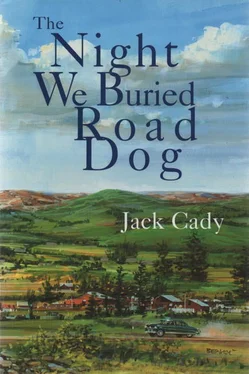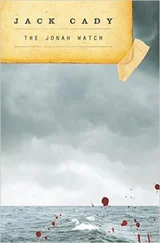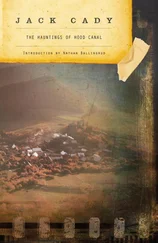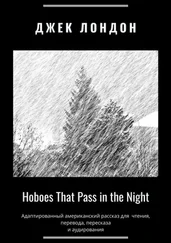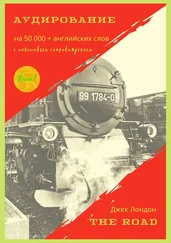Jack Cady
THE NIGHT WE BURIED ROAD DOG
Jack Cady, F&SF, and Road Dog
By Kristine Kathryn Rusch
Jack Cady never looked like a stereotypical writer. He looked like a Pacific Northwest fisherman. He had an angular, weather-toughened face, which he accented with a beard but no mustache. His deep voice was authoritative, but his eyes were always kind.
And he was patient—oh, so very patient.
He had to be. When he sent me “The Night We Buried Road Dog,” he walked into the middle of a battle zone. I, the thirty-two-year-old new editor of F&SF , and Edward L. Ferman, the magazine’s former editor and the publisher who had hired me, were in the midst of a war.
I believe that novellas are the heart and soul of fantasy and science fiction at the short length. Ed didn’t like novellas at all—partly (mostly) because they cost so much and took up so much space in the magazine. Jack Cady’s “Road Dog,” which was how we referred to it in-house, was 30,000 words long—exactly half the length of an issue of the magazine.
I controlled content, but Ed controlled the purse strings. Every time I sent Ed a novella, I had to justify both the story’s length and its quality. Fortunately, I had an excellent track record. I edited a novella line for Pulphouse Publishing, the hardcover press I’d helped found, and most of the novellas in that line had been nominated for the major awards in the field.
I had an eye, and I knew it.
But Ed had different priorities. If we were going to publish novellas (and he wasn’t even certain of that), he wanted each novella to be worth the space it took in the magazine. In other words, it had to be better than every other story in the issue. Four to five times better, since it took the space of four to five stories. A novella from an unknown, like Jack Cady was in the sf field in those days, wouldn’t sell magazines, and so wasn’t worth the money.
Valid arguments all. I’ve made similar ones when I’ve worn a publisher’s hat. But “Road Dog” was something special—and I knew it.
“Road Dog” was one of the first novellas I received at F&SF . I loved the story. Ed hated it. So he sat on it—for months—while I fired off letters explaining the situation to Jack Cady, who graciously allowed me to champion his story because he wanted it in the pages of F&SF .
Eventually, Ed gave up. He had learned over the course of our working relationship that I could outlast him. (He didn’t know how many letters I wrote to brilliant writers, asking to hang onto their novellas for another month.)
“Road Dog” became the cover story for the January 1993 issue.
Then the buzz started…. “Road Dog,” reviewers said, was the story of the year. It won the Nebula and World Fantasy awards, among others (a few of them mainstream).
Fast forward to spring, 2008. Jack Cady—one of the kindest, most gentle souls I’ve ever met—is no longer with us. I haven’t edited a word of someone else’s fiction for more than eleven years.
Then Gordon Van Gelder, the publisher and editor of F&SF , sends me an email. Would I pick a story for the sixtieth anniversary that represented my tenure as editor?
Imagine my trepidation as I wrote back: Would “ The Night We Buried Road Dog ” work? I realize it’s very, very long.
If Gordon had said no, I would have picked another story. A shorter story…. But Gordon didn’t ask for another story. Instead, he said he had hoped I would pick “Road Dog.” He felt it best represented my years at F&SF .
He wanted “Road Dog” for the very reason I did. Quite frankly, I believe “Road Dog” is one of the best stories I’ve ever read , let alone had a small hand in.
How small was my hand? If I remember correctly, I never asked Jack for a revision. I’m not even sure the manuscript received much copyediting. All I did was recognize an excellent story and champion it before my publisher, whose considerations (money and space) differed from mine.
All of the credit for “Road Dog,” however, goes to Jack Cady. Not just for his spectacular writing, but also for his patience.
I miss Jack. He will never write another new story—and that’s a cause for sadness.
But he wrote some spectacular stories during his all-too-brief career.
Fortunately, we can share my favorite right here. Those of you who are reading “Road Dog” for the first time, enjoy…. Those of you who read it more than fifteen years ago, read it again. It’s one of those rare stories that gets better with age.
Brother Jesse buried his ’47 Hudson back in ’61, and the roads got just that much more lonesome. Highway 2 across north Montana still wailed with engines as reservation cars blew past; and it lay like a tunnel of darkness before headlights of big rigs. Tandems pounded, and the smart crack of downshifts rapped across grassland as trucks swept past the bars at every crossroad. The state put up metal crosses to mark the sites of fatal accidents. Around the bars, those crosses sprouted like thickets.
That Hudson was named Miss Molly, and it logged 220,000 miles while never burning a clutch. Through the years, it wore into the respectable look that comes to old machinery. It was rough as a cob, cracked glass on one side, and primer over dents. It had the tough-and-ready look of a hunting hound about its business. I was a good deal younger then, but not so young that I was fearless. The burial had something to do with mystery, and Brother Jesse did his burying at midnight.
Through fluke or foresight, Brother Jesse had got hold of eighty acres of rangeland that wasn’t worth a shake. There wasn’t enough of it to run stock, and you couldn’t raise anything on it except a little hell. Jesse stuck an old house trailer out there, stacked hay around it for insulation in Montana winters, and hauled in just enough water to suit him. By the time his Hudson died, he was ready to go into trade.
“Jed,” he told me the night of the burial, “I’m gonna make myself some history, despite this damn Democrat administration.” Over beside the house trailer, the Hudson sat looking like it was about ready to get off the mark in a road race, but the poor thing was a goner. Moonlight sprang from between spring clouds, and to the westward the peaks of mountains glowed from snow and moonlight. Along Highway 2, some hot rock wound second gear on an old flathead Ford. You could hear the valves begin to float.
“Some little darlin’ done stepped on that boy’s balls,” Jesse said about the driver. “I reckon that’s why he’s looking for a ditch.” Jesse sighed and sounded sad. “At least we got a nice night. I couldn’t stand a winter funeral.”
“Road Dog?” I said about the driver of the Ford, which shows just how young I was at the time.
“It ain’t The Dog,” Jesse told me. “The Dog’s a damn survivor.”
You never knew where Brother Jesse got his stuff, and you never really knew if he was anybody’s brother. The only time I asked, he said, “I come from a close-knit family such as your own,” and that made no sense. My own father died when I was twelve, and my mother married again when I turned seventeen. She picked up and moved to Wisconsin.
No one even knew when, or how, Jesse got to Montana territory. We just looked up one day, and there he was, as natural as if he’d always been here, and maybe he always had.
His eighty acres began to fill up. Old printing presses stood gap-mouthed like spinsters holding conversation. A salvaged greenhouse served for storing dog food, engine parts, chromium hair dryers from 1930s beauty shops, dime-store pottery, blades for hay cutters, binder twine, an old gas-powered crosscut saw, seats from a school bus, and a bunch of other stuff not near as useful.
Читать дальше
